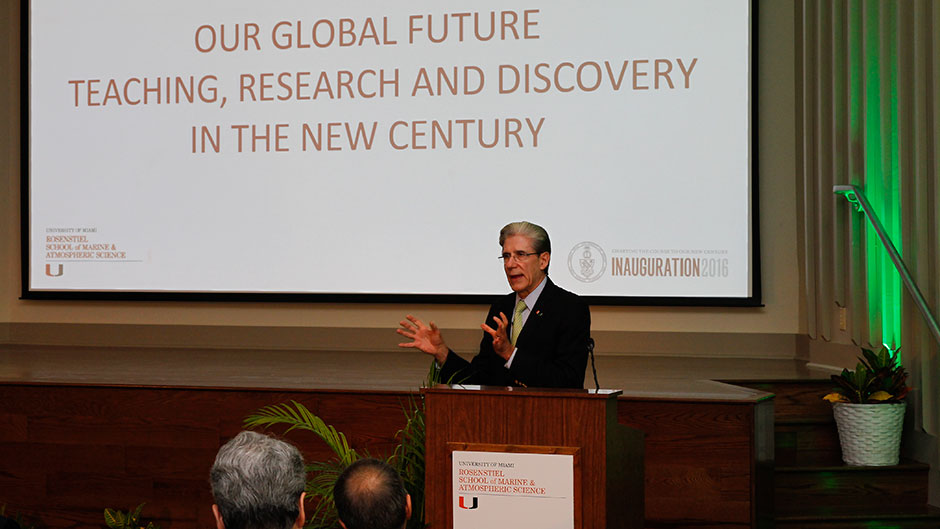With the soft waves of Biscayne Bay providing a sparkling wink of approval, the University of Miami concluded its Inauguration Week events at its waterfront campus on Virginia Key.
In the newly renovated auditorium at the Rosenstiel School of Marine and Atmospheric Science, UM President Julio Frenk recapped the highlights of Inauguration Week, which included a luncheon celebrating women’s athletics; a groundbreaking for a new medical education building at the Miller School of Medicine campus; a conversation about UM’s historic “firsts;” a new series of ‘Cane Talks showcasing the talent of UM’s faculty; and Saturday’s talk about how an emphasis on teaching, research, and discovery is critical to our global future.
“Dean (Roni) Avissar was telling everyone that we were saving the best for last,” Frenk quipped.
Frenk also mentioned the $100 million gift from Phillip and Patricia Frost announced at Friday’s Inauguration Ceremony that will be used for a new initiative to support basic and applied science and engineering. And his commitment to create 100 new endowed chairs by the University’s centennial in 2025.
“There is a lot to do ahead of us,” he said.
And Frenk told the 150 people attending a little known fact that the soil used to create the Rickenbacker Causeway in 1947 was excavated on the Coral Gables campus to create Lake Osceola.
“You can say that Rosenstiel and Coral Gables are really connected,” he said, clasping his hands.
During Inauguration Week, Frenk repeatedly referenced “building bridges,” especially when it comes to academic disciplines. This will be critically important as the University expands and enhances its research and knowledge to address the threat of sea level rise and climate change on our environment.
During his 100 day listening exercise, Frenk said, sea level rise was the number one topic most discussed. Every school and college at the University, he said, is engaged in this matter – none more so than the Rosenstiel school.
In concluding the event, Avissar told the audience that Rosenstiel’s mission – its “passion” – is to share knowledge and “educate the next generation of scientists.”

